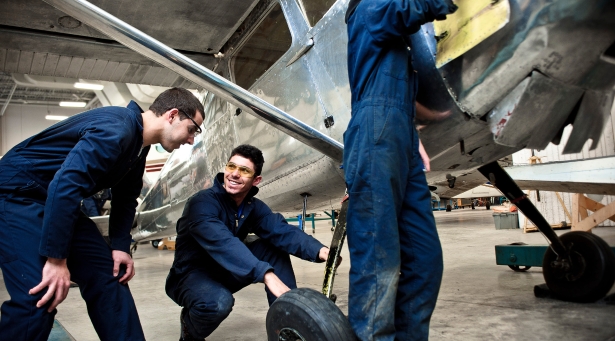
Shortage of Skills: Aviation Technician & Mechanic Professionals
According to Boeing, an estimated 1.5 million pilots and technicians will be needed to meet global demand, with an annual growth of 35,000 new technicians in North America alone. Between 2016 and 2035, Boeing projects the world’s commercial aviation industry will require 617,000 new commercial airline pilots, 670,000 new airline maintenance technicians, and 814,000 new cabin crew members.
The aviation industry offers exceptional and competitive pay in addition to long-term job security. The Bureau of Labor Statistics estimates that the median annual earnings for aviation technicians is over $55,000 a year.
These high demand positions require top rate education to ensure that graduates are eligible to take the necessary FAA exams to obtain their Airframe & Powerplant licenses and mechanic certificates. Career education colleges and university stand ready to prepare students for in-demand jobs and ensure that employers have the talent pipeline they require.
“Our sector produces a significant number of technicians in the automotive, diesel, and motorcycle arenas. But the reality is that our schools also produce the aviation mechanics that ensure the planes we fly on are safe and reliable. While the numbers to total mechanics is not large, their importance is significant. This is one of many occupational areas where postsecondary career schools identify society’s needs and innovate to design and deliver high-quality programming that produces results,” said Steve Gunderson, president and CEO of CECU.
About Shortage of Skills
Each month CECU will profile America’s “Shortage of Skills” (SOS) in one key industry. We will examine industries that are critical to America’s economic advancement and explain how a well-educated and well-trained workforce can address these issues.
About Career Education Colleges and Universities (CECU)
Career Education Colleges and Universities (CECU) is a membership organization of accredited institutions of higher education that provide postsecondary education with a career focus. CECU’s work supports thousands of campuses that education millions of students.
